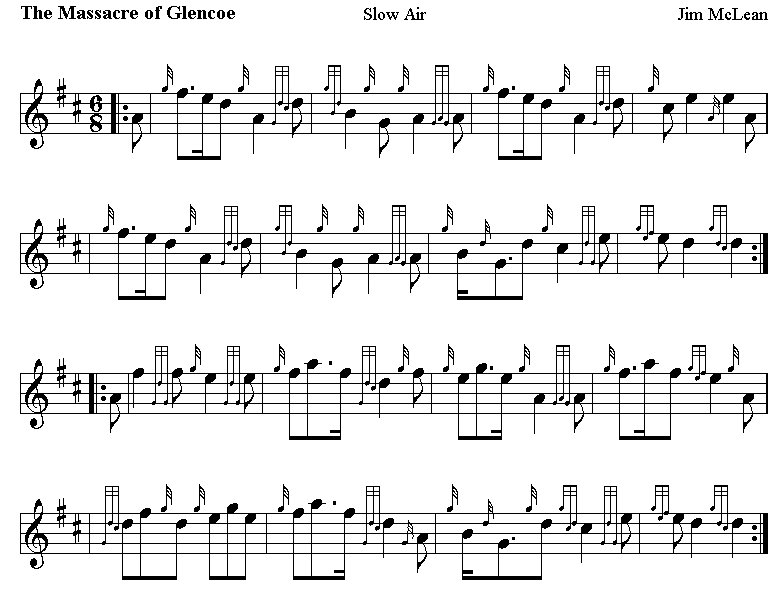 |
||||

Best viewed in
|
Glen Coe (Scottish Gaelic: Gleann Comhann) is in the Highlands of Scotland. It lies in the southern part of the Lochaber committee area of Highland Council, and was formerly part of the county of Argyll. It is often considered one of the most spectacular and beautiful places in Scotland. The name Glen Coe is often said to mean "Glen of Weeping", perhaps with some reference to the infamous Massacre of Glencoe which took place there in 1692. However, 'Gleann Comhann' does not translate as 'Glen of Weeping'. In fact the Glen is named for the River Coe which runs through it, and bore this name long prior to the 1692 incident. The name of the river itself is believed to predate the Gaelic language and its meaning is not known. One possibility is that it was named for a tribe once living in the area; however this remains speculation. The Massacre of Glencoe occurred in Glen Coe, Scotland, in the early morning of 13 February 1692, during the era of the Glorious Revolution and Jacobitism. The massacre began simultaneously in three settlements along the glen—Invercoe, Inverrigan, and Achacon—although the killing took place all over the glen as fleeing MacDonalds were pursued. Thirty-seven MacDonalds from the Clan MacDonald of Glencoe were killed by the guests who had accepted their hospitality, on the grounds that the MacDonalds had not been prompt in pledging allegiance to the new king, William of Orange. Another forty women and children died of exposure after their homes were burned. Under Scots law there was a special category of murder known as "murder under trust" which was considered to be even more heinous than ordinary murder. The Glencoe massacre was a clear example of such. The conclusion of the commission was to exonerate the King and to place the blame for the massacre upon Secretary Dalrymple. The Scottish Parliament, after reviewing the commission report, declared the execution of the MacDonald men to have been murder and delegated the "committee for the security of the kingdom" to prepare an address to the king which included recommendations for the punishment of the perpetrators of the plot and compensation to be paid to the surviving MacDonalds. As far as is known, these recommendations were never acted upon except for the imprisonment of John Campbell Earl of Breadalbane for a few days in Edinburgh castle on a charge of high treason because he had been involved in secret talks with the Jacobite chiefs. The Glencoe massacre became a propaganda piece for Jacobite sympathies which were to come to a head in the next generation in the Rising of 1745. Due to the involvement of Argyll's regiment under Glenlyon's command, the massacre was regarded not as a government action, but as a consequence of the ancient MacDonald - Campbell rivalry. Memory of this massacre has been kept alive by continued ill feeling between MacDonalds and Campbells — since the late 20th century the Clachaig Inn, a hotel and pub in Glencoe popular with climbers, has had a sign on its door saying "No Hawkers or Campbells". Each year, on the 13th February, the Clan Donald Society of Edinburgh arranges an annual wreath laying ceremony at the memorial to the Massacre of Glencoe. Clansmen from Clan Donald, from across the world, attend the ceremony, along with local people.
Lyrics by Jim McLean
|
|||

